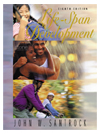1. Herman's mother has Parkinson's disease. He wants her to make some difficult end-of-life decisions while she still can. He and his mother discuss the options of a health care power of attorney, a living will, and/or a DNR. What are the different purposes of these documents and what is the family's involvement in these decisions? http://www.aarp.org/confacts/programs/endoflife.html 2. Letitia, a recent widow, is interested in starting a program for widowed women in her community. In order to start the process to request funding, she is exploring her options in foundation grants. As part of this process, she will need to investigate the available data on the nature and extent of widowhood in the United States today, including the age, sex, and socioeconomic status of widowed people. What type of information is available to her and her group? http://www.aarp.org/griefandloss/stats.html 3. Ellen has taken care of her mother throughout her long, lingering illness that has just been diagnosed as terminal. Ellen does not think she alone can provide the type of care necessary to take care of her mother in her final weeks. Her neighbor suggested she contact the local hospice. What does a hospice offer to families in this situation and how is it different from a nursing home. http://www.aarp.org/bulletin/june98/labyak.html | 


 2002 McGraw-Hill Higher Education
2002 McGraw-Hill Higher Education